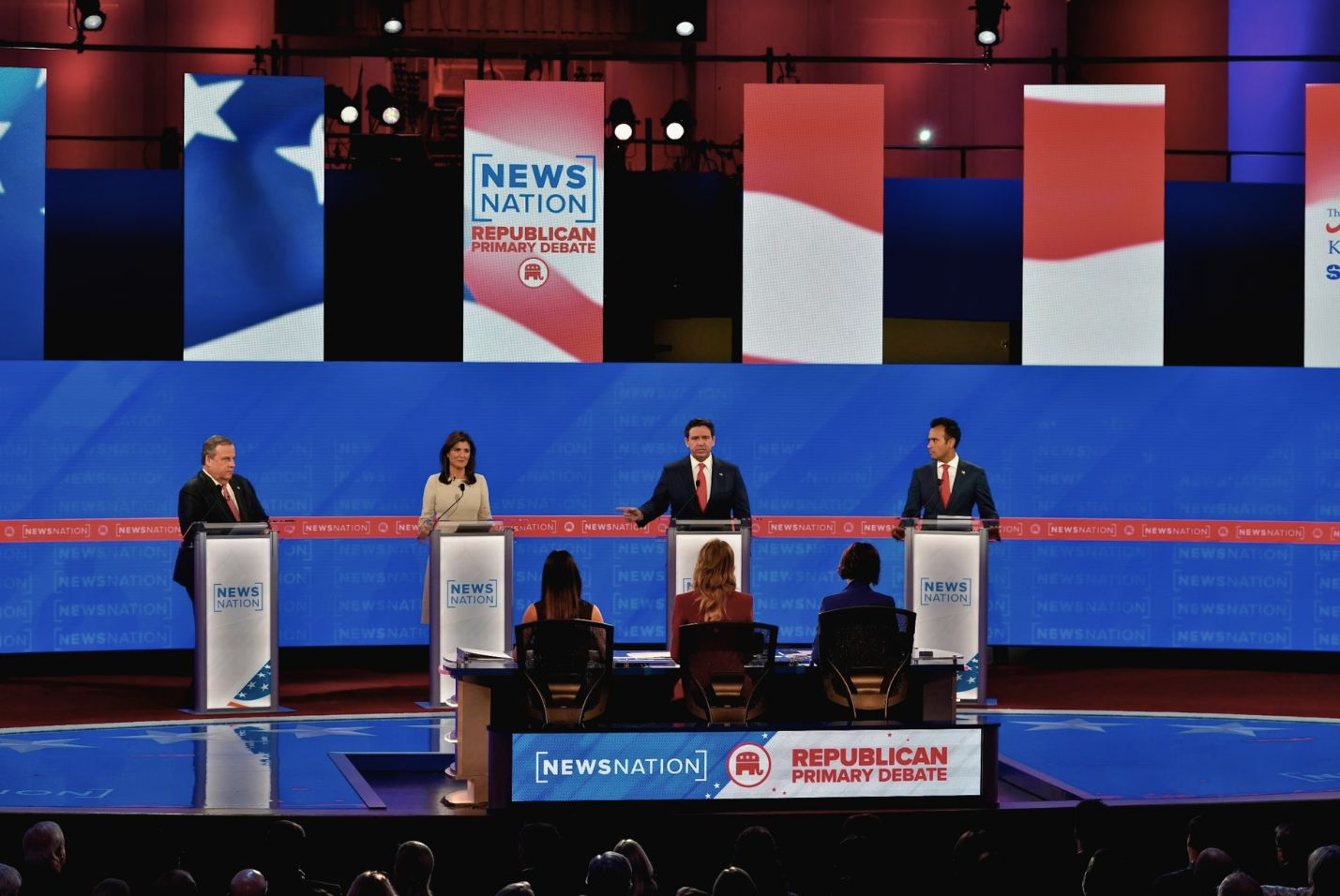As the Republican primaries begin in states across the country, what appeared to be a wide field of challengers to former President Donald Trump has begun to thin. Initially, a number of candidates launched campaigns for the primary, with Vivek Ramaswamy as the first to officially announce his candidacy in February of 2023. The field soon filled out with twelve other candidates. A few of these—Francis Suarez, Will Hurd, Perry Johnson, and Larry Elder—did not qualify for any debates and dropped out before the primaries, so they will not be covered in this article.
A number of candidates in the Republican primaries managed to garner significant support and attended debates, but dropped out before the primaries or after the Iowa caucus. One of the initial favorites to upset Trump in the Republican race was Ron DeSantis, the current governor of Florida. DeSantis won the election for the governor’s office in 2018 after securing the endorsement of then-president Donald Trump, leading his opponent narrowly by just 0.4 percent of the vote. He quickly garnered national attention during the COVID-19 pandemic for his refusal to institute lockdowns, as well as policies focused on “culture war” issues—including race, sexual orientation, and gender identity. He passed a number of controversial bills, including the Parental Rights in Education law, better known as the “Don’t Say Gay” law, which aimed to prevent discussion of sexual orientation or gender identity in school classrooms.
It was clear from early on in DeSantis’s gubernatorial career that his aspirations extended beyond the governor’s office, and his presidential campaign had already garnered significant momentum when he announced it in May of 2023. However, DeSantis’s campaign was plagued by issues. According to NBC News, forty percent of his campaign’s initial hires were fired to conserve resources in just the first few months of his campaign, while Never Back Down, his Political Action Committee (PAC) ended up spending much less than planned on Desantis’s campaign. Though DeSantis was polling close to Trump as a potential Republican nominee for 2024 after his gubernatorial reelection in 2022, his failed campaign doomed him to a dismal performance in the primaries, and he dropped out of the race after not winning a single county in the Iowa caucus. DeSantis subsequently endorsed Trump for the Republican nomination.
Though DeSantis was viewed as the most significant contender to Trump early on, a few other candidates did challenge the forerunner over the course of the race. Mike Pence, Trump’s former Vice President, also ran a campaign launched in 2023, but suffered from very poor polling numbers and dropped out before the Iowa caucuses. Vivek Ramaswamy, a businessman who also ran a campaign for the nomination, garnered traction following his inflammatory debate performances, including one moment where he declared, much to the anger of the other candidates, “I’m the only person on this stage who isn’t bought and paid for.” Ramaswamy rapidly rose in popularity, with a few polls showing him eclipsing DeSantis as Trump’s main challenger. However, he withdrew his campaign on the day that the Iowa caucuses began, shortly before DeSantis. Ramaswamy also endorsed Trump.
The last remaining challenger to Trump is Nikki Haley, who launched her campaign in February of 2023. She initially did not garner much traction in the primary, polling below ten percent as recently as October of 2023 according to FiveThirtyEight, but steadily gained ground after her performance in the Republican primary debates. Her polling numbers closed in on those of DeSantis in December 2023, and passed his shortly before DeSantis dropped out of the race.
Nikki Haley has competed in the Iowa, Nevada, and New Hampshire primaries, and, as of writing, has not yet dropped out of the race. However, despite her efforts to present herself as a younger, more moderate candidate than the former president, she is still polling stubbornly behind Trump, with recent polls showing Trump having more than three quarters of Republican support. Trump is also currently leading in delegates, which are required to win the primary, with sixty-three delegates to Haley’s seventeen.
With Trump’s lead only growing and Biden so far facing no significant challengers from his own party, it appears that the 2024 election will once again be a faceoff between the two—this time with Biden as the incumbent. However, many are dissatisfied with this choice. According to a Reuters poll, sixty-seven percent of voters are “tired of seeing the same candidates in presidential elections and want someone new.” With Trump in his late seventies and Biden in his early eighties, many Americans simply want to see someone younger in the Oval Office—though, it seems, they may need to wait until 2028.

